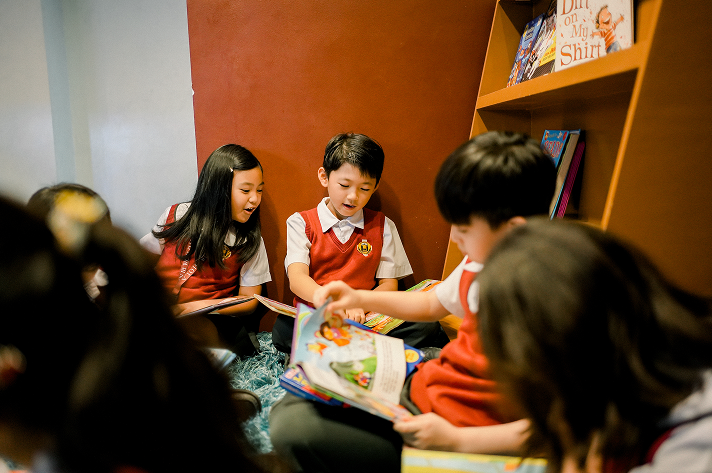
- February 19, 2025
- Admin
- 0
The Importance of Moral Education in Primary Schools
As parents, we all wish for our children to be responsible, nice, and ethical adults. Yes, academic excellence is essential; however, character development also plays a vital part in their future. And this is where moral education becomes necessary. Schools should be extensions of something greater than textbooks and exams; they should help instil good values, foster empathy, and create a sense of responsibility.
Your child’s being trained in ethics at a tender age is crucial in this era of haste and exposure to negative influence.
What is Moral Education in School?
The meaning of moral education, unlike the study of disciplines like mathematics or science, focuses not on facts but on the cultivation of emotion and behaviour. It teaches lessons about kindness, honesty, fairness, and respect, helping kids learn how their actions affect those around them.
In many elementary schools in Pasig city, where they have introduced moral lessons into the curriculum, the students get to learn the importance of fairness, respect, and responsibility. Such lessons might take the form of classroom discussions, story-telling, role-playing, and real-life scenarios in which students practice making ethical judgments.
This makes sure that moral values are practised in real life and are not seen as theoretical beliefs.
Importance of Moral Education
The importance of moral values in students life is that it shapes a child’s capacity to relate to peers, contribute to their community and make responsible decisions. Children without this guidance may have difficulty distinguishing between right and wrong and typically will act out behaviorally in school and later on in life.
Moral education also helps children to internalize discipline and teaches them the importance of resilience. They discover the importance of patience, diligence, and determination. A child who understands honesty will not want to practice dishonesty, and a child who is taught respect will treat others with respect. As such, when schools promote and teach moral values, children excel academically and benevolently in all facets of their lives and become upright adults.
1. Character Building
The foundation of a strong personality lies in good character. Teaching moral values in school helps children develop virtues such as honesty, humility, kindness, and gratitude. Schools must reinforce the importance of moral values in students’ life, ensuring they grow into trustworthy and responsible individuals. As parents, when you teach your child to be honest and kind, their confidence and self-respect grow, making them well-liked and respected by peers and teachers.
2. Building Ethical Frameworks
One of the biggest responsibilities of education is to equip children with strong ethical decision-making skills. When schools emphasize education and morality, students develop a clear understanding of ethical dilemmas. They learn to distinguish right from wrong, not just by rules but by understanding consequences. Schools that integrate ethics into their curriculum create individuals who value integrity over shortcuts and fairness over personal gain.
3. Crime Reduction
A well-structured ethical education program in schools can significantly contribute to reducing crime. Children who are taught to respect laws, understand boundaries, and value honesty are less likely to engage in delinquent behavior. Research shows that instilling moral values from an early age prevents tendencies toward dishonesty, bullying, or even serious crimes later in life. Parents must recognize that the moral foundation built in primary school can shape their child’s long-term behavior and decisions.
4. Active Citizenship
For a country to prosper, it needs responsible citizens. Schools must teach children about their duties towards society and encourage civic responsibility. When moral values such as fairness, justice, and respect are instilled at an early stage, children grow up understanding their role in a harmonious society. In the schools in Pasig City, programs that encourage environmental responsibility, honesty, and teamwork help students become engaged and conscientious members of society.
5. Conflict Resolution and Problem-Solving Skills
Conflicts are an inevitable part of life, whether in school, at home, or later in professional spaces. A child who receives moral education learns how to handle disagreements calmly, respect differing opinions, and find peaceful solutions. Schools play a significant role in teaching children patience, empathy, and negotiation skills. This ensures that your child grows up equipped to handle challenges in a mature and thoughtful manner.
6. Addressing Social Evils
Bullying, discrimination, dishonesty — these are the common issues that today’s world is fraught with. If children are not guided properly, they may fall into these negative practices unconsciously. School plays a very critical role in this regard. Moral education is intensively related to shaping the personality of the students.
Conclusion
As a parent, you want to ensure your child inherits good values and principles. While some believe academic excellence is enough for children, moral education in primary schools develops students who are not only academically strong but also kind, responsible, and ethical human beings. Moral values are at the core of being responsible, whether for preventing crime, nurturing noble character, or maintaining social peace.

